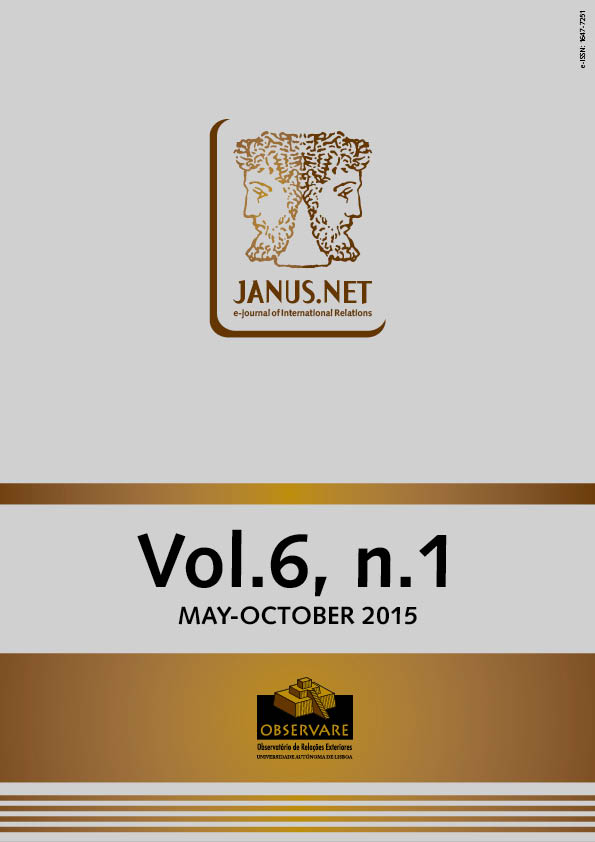The construction of EU security actorness has been accompanied by a narrative on security nexuses (internal-external, security-development, civilian-military, public-private) associated with the so-called ‘comprehensive approach’. The end of the Cold War enabled the explicitness of EU security actorness. The post 9/11 facilitated the reinforcement of previous trends (transnational threats, externalisation of ‘internal security’, interpillarisation) and the introduction of innovative tendencies (comprehensive approach, internalization of the Common Security and Defence Policy, interconnection of security nexuses). This paper focuses on the internal-external security nexus declared by the EU in the post-Cold War, and reflects about the rationale and effects of the European narrative and practices on the configuration of a post-Westphalian security actor. Based on the analysis of three expressions of the nexus, it is argued that the latter reflects a securitising move of the European actor explained by the convergence of opportunity (redefinition of security, prioritization of transnational threats in a globalized world, soft power enhancement in the post-Cold War), capacity (legal, organic and operational in the field of security, after the entry into force of the Treaty on European Union), and (ambition to have a) presence. The holistic approach underlying the logic of the nexuses is the result of a co-constitutive adequacy: appropriation of policies and instruments of a multifunctional actor for security purposes (security of the EU and of European citizens); securitization of issues in order to promote the policies and the actor.
THE INTERNAL-EXTERNAL NEXUS IN THE SECURITY NARRATIVE OF THE EUROPEAN UNION
Lecturer in International Relations at the School of Economics and Management, University of Minho (Portugal), and researcher at the Centre for Research in Political Science (CICP). Holder of a PhD in Political Science and International Relations, a Master Degree in European Studies and a Bachelor Degree in International Relations. Director of the PhD Programme in Political Science and International Relations and of the MA in Community Policies and Territorial Cooperation. Research interests: security theories, European security, human security, political system of the European Union.
Resumo
Palavras-chave
Como citar este artigo
Brandão, Ana Paula (2015). “The Internal-External nexus in the security narrative of the European Union”. JANUS.NET e-journal of International Relations, Vol. 6, N.º 1, MayOctober 2015. Consulted [online] on date of last visit, https://repositorio.ual.pt/handle/11144/1761
Article received on 13 November, 2014 and accepted for publication on 10 April, 2015















